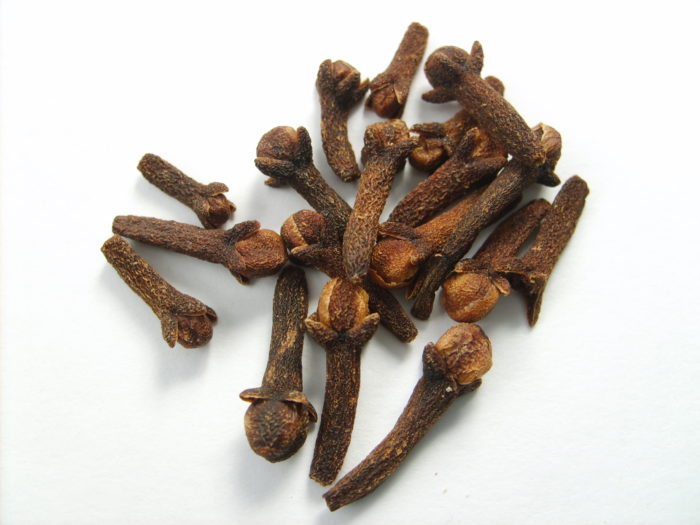Many people google every day, “Can dogs eat cloves?” or “My dog ate cloves! What should I do?”. Let’s try to find the right answer.
Summary: Can Dogs Eat Cloves?
As a type of spice, we can infer that cloves are by and large safe for dogs, but only when offered in minuscule amounts.
If you need more details, please read the text below.
Many spices and herbs that offer numerous health benefits to humans can also be beneficial for pets. So, if you have a pet Labrador or Alsatian, you’d surely like to know which spices and herbs would be healthy for the canine and safe to consume.
Talking about canines, some herbs, condiments, and spices spell several health benefits with minimal side-effects while others are not.
You can offer spices and condiments like cinnamon, peppermint, coriander, ginger, cardamom, and Echinacea to your pet dog. But many individuals and families with pet dogs want to know-“can dogs eat cloves?” Clove is an aromatic bud of the Syzygium aromaticum tree grouped under the ‘Myrtaceae’ family.
There’s a lot of ambiguity on the subject of whether dogs can eat cloves or not. In this article, we’ll try to throw light on the issue and demystify the same.
Can You Offer Cloves to Your Dog?
When it comes to answering the question-can dogs eat cloves-there is no straightforward and clear-cut answer. A significant proportion of veterinarians believe that offering cloves or clove-flavored foods to dogs could be potentially harmful. Eugenol, a compound found naturally in cloves, has been known to cause toxicity in cats, adversely affecting their livers.
So, the possibility of your canine friend suffering from the same issue is always there. However, studies and researches have established that cloves’ side-effects on dogs may be less pronounced or acute. On the other hand, many veterinarians recommend adding cloves to your dog’s diet, although in minimal quantities.
Talking about the right dosage of cloves, you may inadvertently cross the threshold that differentiates the toxic dose from an ideal one. You also need to understand that some breeds could be more sensitive or allergic to certain spices than other breeds.
However, regardless of what veterinarians have to say, you should be very careful about feeding cloves to the pet.
To stay on the safe side, you should get in touch with a certified veterinarian who can offer you valuable advice.
Benefits/Side Effects of Cloves for Dogs
Cloves could benefit you, regardless of whether you consume it raw or take it as a garnishing. But nutritionists, dieticians, and veterinarians still don’t know how the spice could benefit canines. The potential benefits of adding cloves to your pet’s diet include:
- Boosting of the immune system
- Aids indigestion
- Helps freshen breath
Compounds present in cloves, including eugenol, rhamnetin, and kaempferol, have antiviral, antibacterial, and anti-inflammatory properties that help cure and prevent infections.
Nevertheless, you should always avoid giving cloves in large quantities to prevent and minimize the occurrence of side-effects. An excessive dose of clove could lead to liver toxicity, irritate the gastrointestinal tract, cause diarrhea, nausea, and vomiting.
Overdosing, in extreme cases, could cause dyspnea, liver dysfunction, and unconsciousness.
Do not ever offer more than three drops of clove oil in 24 hours to an adult dog. And it’s better not to give cloves, in any form, to pups.
Conclusion: Are Cloves Safe for Dogs?
Closing up, we can infer that cloves, as a type of spice, are by and large safe for dogs, but only when offered in minuscule amounts.
